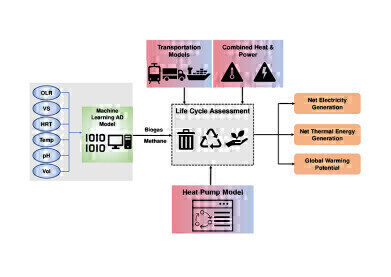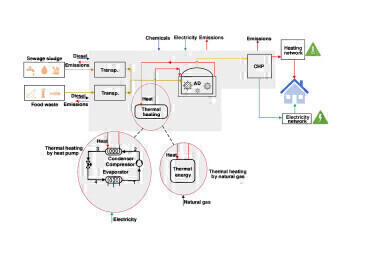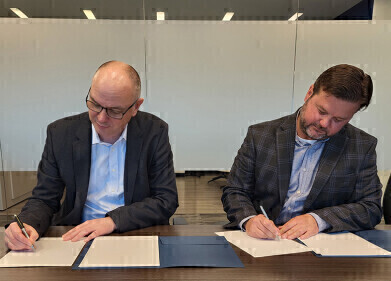Waste Management
Reduce carbon footprint of biogas by 36% research suggests.
Jan 27 2023
Heat pumps could potentially reduce the carbon footprint of biogas production by 36%, according to research from the University of Glasgow. Biogas is produced through anaerobic digestion, which involves breaking down biodegradable materials in oxygen-free conditions using microorganisms. This process releases biogas, a mixture of methane and carbon dioxide that can be burned to generate low-carbon electricity. Bioreactors are used to maintain optimal temperatures during anaerobic digestion to maximize biogas production. The University of Glasgow researchers set out to compare the carbon footprint of bioreactors heated by air-source heat pumps, which draw ambient heat from the air in a low-carbon process, with conventional heating systems using natural gas boilers.
To do this, the researchers created a computer model of the thermodynamics of heat pumps, which they coupled with machine learning-based anaerobic digestion modelling. They trained the new system using a database of existing research, and then tested it using real-world data to ensure accuracy. The researchers then used a standardized approach called life cycle assessment to compare the carbon footprint of the heat pump-based system to that of the natural gas-based system over their expected lifespans. They found that the heat pump system significantly reduced the carbon footprint of the process when processing food waste and sewage sludge, with a maximum reduction of 36.1% at a temperature of 37.5°C.
This research could support ongoing efforts to decarbonize national electricity grids and enable remote communities to produce their own low-carbon power locally. It could also inform the development of future bioreactors that could be used in remote communities to turn waste into biogas, potentially helping people produce their own local source of electricity. In addition, the research is part of a larger effort to decarbonize water and wastewater treatment in rural communities. Lead author Dr. Siming You, from the University of Glasgow's James Watt School of Engineering, said, "There's a significant role for heat pumps in supporting low-carbon anaerobic digestion."
Events
IWA World Water Congress & Exhibition
Aug 11 2024 Toronto, Canada
Aug 25 2024 Stockholm, Sweden and online
Sep 03 2024 Mexico City, Mexico
Sep 03 2024 Mexico City, Mexico
Sep 03 2024 San Diego, CA, USA















